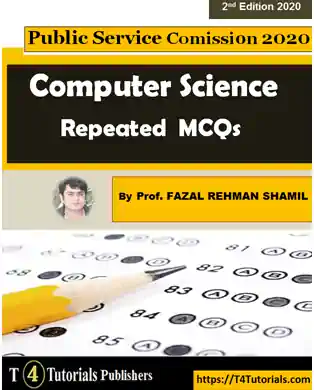Let us see the important Technology Management MCQs collected from different past papers.
1. At services,high labor intensity requires systematic recruiting and trainings along with the
a) Scheduling of equipment
b) Manage mechanistic structure
c) Coordinating dispersed activities
d) Skill development
e) none of these
2. The boundary roles of product organizations are known as
a) Moderate
b) Alternative
c) constant
d) Many
e) Few
3. The processes of amount of centralization for service organization can be calculate to be
a) alternative
b) Low
c) Medium
d) High
e) Undefined
4. Low interaction and customization at services results into
a) Respond to customer intervention
b) Systematic training
c) Formalize and standardize skills
d) Managing demands
e) All of these
5. Basically governed technology, structure followed in the form of
a) non-organic
b) Mechanistic
c) Organic
d) Non-formalized
e) Decentralized
6. Low labor intensity at services requires to have scheduling of equipment and
a) Skill development
b) technological advances
c) Manage mechanistic structure
d) Coordinating dispersed activities
e) both a and b
7. At service organizations, skill emphasis can be thought of
a) Narrow and broad
b) Broad and interpersonal
c) Narrow and broad
d) Narrow and technical
e) Broad and technical
8. Service managers look for low labor intensity must meet need of having
a) Standard services
b) Systematic recruitment
c) both a and b
d) Skill development
e) Technological advances
9. Service managers look for high labor intensity challenge must meet requirement of having
a) Standard services
b) Systematic recruitment
c) Cost limit
d) Skill development
e) Technological advances
10. The structure followed by a non-routine technology is said to be
a) in-organic
b) Mechanistic
c) Formalized
d) Decentralized
e) Organic
11. The benefits of transistors are
a) Are portable
b) Are more reliable
c) Consume less power
d) All of the above
e) None of these
12. The basic parts of DSS are
a) Database
b) Model base
c) DSS software system
d) All of the above
e) None of these
More MCQs on Technology Management
- Technology Management Activities and Tools MCQs
- Technology Management Frameworks MCQs
- Technology Management Activities MCQs
- Identification MCQs – Technology Management
- Selection MCQs – Technology Management
- Acquisition MCQs – Technology Management
- Exploitation MCQs – Technology Management
- Protection MCQs – Technology Management
- Learning MCQs – Technology Management
- Technology Management Tools MCQs
- Patent Analysis MCQs – Technology Management
- Portfolio Management MCQs – Technology Management
- Roadmapping MCQs – Technology Management
- Value Analysis / Value Innovation MCQs – Technology Management
- Technology Management Functions MCQs
- Planning
- Decision Making
- Organizing MCQs –
- Leading Technical People
- Technology Transfer Management MCQs – Technology Management
- Digital Strategies and Innovation MCQs – Technology Management
- Technology Management Fundamentals MCQs
- Strategic Technology Management MCQs
- Innovation Management MCQs
- Intellectual Property (IP) Management MCQs
- Technology Forecasting and Assessment MCQs
- Information Systems MCQs
- Technology and Organizational Change MCQs

